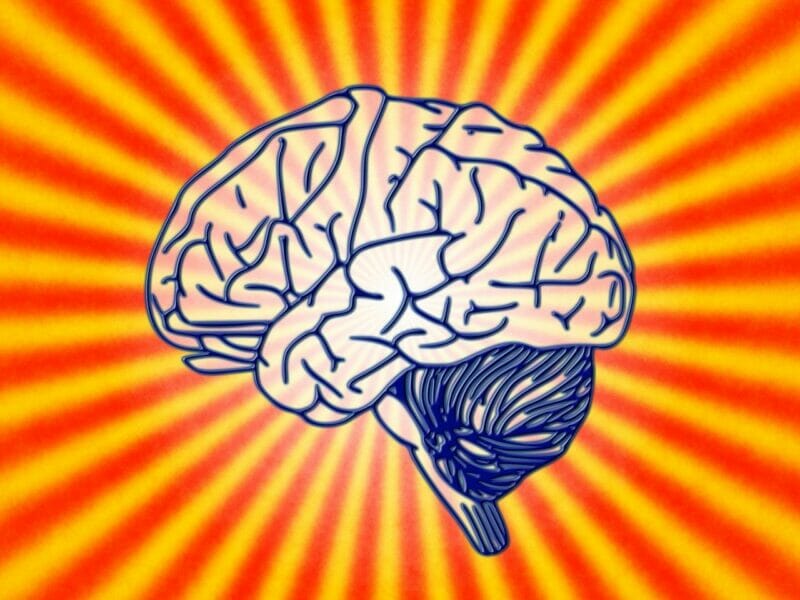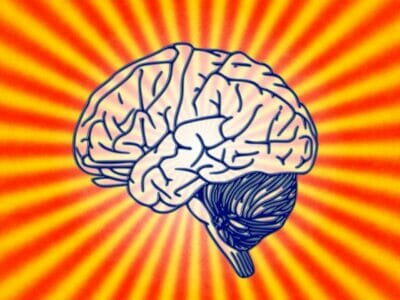Anxiety disorders are a widespread mental health issue, affecting millions of people worldwide. As researchers and medical professionals seek to better understand the root causes of anxiety and develop effective treatment options, a fascinating neurotransmitter called GABA has emerged as an important player in the field. This article delves into the intricate relationship between GABA and anxiety, exploring how this inhibitory neurotransmitter influences our brain’s response to stress and why its dysregulation can contribute to anxiety disorders. By shedding light on the role of GABA in anxiety, we aim to provide insights into potential therapeutic strategies for managing this debilitating condition.
The Role of GABA in the Brain
Anxiety disorders are a significant global mental health concern, impacting numerous individuals. In the pursuit of comprehending the underlying causes of anxiety and developing successful treatments, researchers and medical professionals have highlighted the crucial involvement of gamma-aminobutyric acid (GABA) in the brain. GABA is an intriguing neurotransmitter that plays a vital role in modulating our brain’s response to stressors, acting as an inhibitory agent. Dysregulation or imbalances within this neurotransmitter system can contribute to the development of anxiety disorders. By unraveling the intricate relationship between GABA and anxiety, we can gain insights into potential avenues for therapeutic intervention.
 GABA acts as a key inhibitory neurotransmitter in various regions of the brain, dampening neural activity and promoting relaxation. Its primary function is to regulate excitatory signals transmitted by other neurotransmitters such as glutamate – effectively preventing overstimulation and maintaining homeostasis within neural networks associated with anxiety-related processes.
GABA acts as a key inhibitory neurotransmitter in various regions of the brain, dampening neural activity and promoting relaxation. Its primary function is to regulate excitatory signals transmitted by other neurotransmitters such as glutamate – effectively preventing overstimulation and maintaining homeostasis within neural networks associated with anxiety-related processes.
This delicate balance ensures that our brains respond appropriately to stressors without triggering excessive fear or anxious states. Alterations in GABAergic signaling have been implicated in several anxiety disorders due to their impact on regulating emotional responses and amygdala activity – a region strongly linked with fear processing.
Understanding how GABA influences our brain’s response to stress offers valuable insights into potential treatment options for anxiety disorders. By targeting this inhibitory neurotransmitter system pharmacologically, it may be possible to restore balance and alleviate symptoms associated with excessive anxiety through drug therapies that enhance GABAergic transmission or indirectly influence its functioning via alternative mechanisms. Researchers aim to further explore these pathways fully while advancing our understanding of GABA‘s complex role in shaping anxious behaviors at both molecular and circuit levels within the brain.
GABA and the Stress Response
GABA, short for gamma-aminobutyric acid, is a neurotransmitter that acts as an inhibitory signal in the brain. It plays a crucial role in regulating neuronal activity and maintaining balance within the central nervous system. When we experience stress or anxiety, GABA helps to calm our overactive nerves by reducing the firing of neurons and promoting feelings of relaxation and tranquility. This is why drugs that increase GABA activity, such as benzodiazepines, are commonly prescribed for anxiety disorders.
The stress response is a physiological reaction triggered by perceived threats or challenges. In times of acute stress, like being chased by a predator or facing an important deadline at work, our body releases stress hormones like cortisol to prepare us for fight-or-flight responses. However, chronic exposure to high levels of stress can disrupt this delicate balance and lead to excessive anxiety. Research has shown that dysregulation in GABA function may contribute to heightened sensitivity towards stressful stimuli by impairing its ability to inhibit excitatory signals in the brain effectively.
Understanding how GABA influences our brain’s response to stress provides valuable insights into the development of anxiety disorders. Dysregulation or deficiencies in GABA functioning have been implicated in these conditions because they disturb the normal inhibitory processes necessary for maintaining emotional stability during periods of elevated arousal. By unraveling the intricate relationship between GABA and anxiety, researchers hope not only to uncover new targets for therapeutic interventions but also shed light on potential preventative strategies against these debilitating mental health issues affecting individuals worldwide.
GABA Receptors and their Functions
GABA receptors play a crucial role in the regulation of anxiety and stress. GABA, or gamma-aminobutyric acid, is an inhibitory neurotransmitter that functions by reducing the activity of neurons in our brain. It binds to specific receptors on the surface of neurons, allowing chloride ions to enter the cell and effectively decreasing neuronal excitability. This action helps to calm and stabilize brain activity, promoting feelings of relaxation and reducing anxiety.
Individuals with anxiety disorders often exhibit dysregulation within their GABA system. This can result in decreased levels of GABA or reduced receptor availability, leading to heightened neuronal excitability and increased susceptibility to anxiety symptoms. By understanding this complex interplay between GABA receptors and anxiety, researchers hope to develop targeted therapies aimed at restoring balance within the GABA system. These treatments may involve medications that enhance GABA function or interventions that modulate its signaling pathways for more effective management of anxiety disorders.
Dysregulation of GABA in Anxiety Disorders
Anxiety disorders, which are prevalent worldwide, have prompted researchers and medical professionals to investigate the etiology of anxiety and develop successful treatments. Among the neurotransmitters involved in anxiety regulation, GABA has gained noteworthy attention. This inhibitory neurotransmitter intricately interacts with the brain’s response to stress, making its dysregulation a potential contributor to anxiety disorders. By comprehending the role of GABA in anxiety, we can further understand the pathophysiology of these disorders and explore avenues for effective interventions.
 GABA (gamma-aminobutyric acid) acts as a crucial regulator in our neural function by inhibiting excessive neuronal activity. In individuals with anxiety disorders, abnormalities in GABA transmission disrupt this delicate balance between excitation and inhibition. Research suggests that reduced levels or impaired functioning of GABA receptors contribute to heightened arousal states commonly observed in those suffering from anxiety.
GABA (gamma-aminobutyric acid) acts as a crucial regulator in our neural function by inhibiting excessive neuronal activity. In individuals with anxiety disorders, abnormalities in GABA transmission disrupt this delicate balance between excitation and inhibition. Research suggests that reduced levels or impaired functioning of GABA receptors contribute to heightened arousal states commonly observed in those suffering from anxiety.
The dysregulation of GABAergic systems may result from both genetic predispositions and environmental factors, underscoring the complex nature of anxiety disorder development.
In conclusion, understanding how dysregulation of GABA impacts anxiety disorders is essential for advancing our knowledge on their underlying mechanisms and developing effective therapeutic strategies. Through continued research on the intricate relationship between GABA and anxiety, researchers hope to shed light on novel treatment options that could alleviate symptoms and improve outcomes for individuals experiencing these debilitating conditions.
GABAergic Medications for Anxiety Treatment
GABAergic medications play a crucial role in the treatment of anxiety disorders. GABA, or gamma-aminobutyric acid, is an inhibitory neurotransmitter that helps regulate the excitatory activity in the brain, promoting feelings of calmness and relaxation. By enhancing the effect of GABA, these medications can effectively reduce anxiety symptoms.
One commonly prescribed class of GABAergic medications for anxiety treatment is benzodiazepines. These drugs work by binding to specific receptors in the brain, which enhances the inhibitory effects of GABA. Benzodiazepines are known for their fast-acting nature and ability to provide immediate relief from acute anxiety episodes. However, due to their potential for addiction and withdrawal symptoms with prolonged use, they are typically prescribed for short-term management.
Another category of GABAergic medications used in anxiety treatment is selective serotonin reuptake inhibitors (SSRIs). While primarily known as antidepressants, SSRIs also increase levels of GABA in the brain leading to reduced anxiety symptoms over time. Unlike benzodiazepines, SSRIs do not cause physical dependence or withdrawal symptoms when discontinued abruptly and are often preferred as long-term options for managing chronic anxiety disorders.
Overall, harnessing the power of GABA through medication represents a valuable approach to alleviate distressing symptoms associated with anxiety disorders while providing patients with much-needed relief and improved quality-of-life outcomes.

Non-pharmacological Approaches to Boost GABA Levels
Non-pharmacological approaches to boost GABA levels have gained increasing attention as potential treatments for anxiety disorders. These approaches focus on stimulating the production and release of GABA in the brain, which acts as an inhibitory neurotransmitter, calming neural activity and reducing feelings of anxiety. One approach is through yoga and meditation techniques, which have been found to increase GABA levels in the brain. Regular practice of these mind-body exercises has shown promising results in reducing symptoms of anxiety by promoting relaxation and stress reduction.
Another non-pharmacological approach is through dietary interventions that target GABA production. Consuming foods rich in certain nutrients such as glutamine can help enhance GABA synthesis in the brain. Additionally, other dietary supplements like L-theanine found in green tea extract have been shown to increase GABA levels and promote a sense of calmness without causing drowsiness or sedation.
Overall, non-pharmacological methods offer alternative strategies to boost GABA levels naturally without relying on pharmaceutical medications. These approaches provide individuals with additional tools for managing their anxiety by targeting the underlying neurochemical imbalances associated with this mental health condition.
Future Directions in GABA Research and Anxiety Treatment
As researchers continue to study the relationship between GABA and anxiety, future directions in this field of research may focus on a deeper understanding of how GABA dysregulation contributes to different types of anxiety disorders. By identifying specific subtypes of anxiety that are associated with imbalances in GABA levels or receptor functioning, advancements can be made in developing targeted treatments for these conditions. This could involve exploring novel pharmacological interventions that modulate GABA activity, as well as investigating non-pharmacological approaches such as neurofeedback or transcranial magnetic stimulation.
Another important direction for future research is identifying potential biomarkers related to GABA dysregulation in individuals with anxiety disorders. Biomarkers can provide objective measures of neurotransmitter activity and response to treatment, aiding in diagnosis and monitoring treatment effectiveness. Understanding how changes in GABA levels or receptor functioning are linked to clinical symptoms can also inform the development of personalized therapeutic interventions for individuals with anxiety disorders.
Overall, as our knowledge about the role of GABA in anxiety deepens, future research efforts will likely focus on refining diagnostic tools and developing more effective treatments that target specific mechanisms involving this neurotransmitter. By pinpointing the intricate workings behind GABA dysregulation and its impact on anxiety disorders, researchers hope to pave the way for improved outcomes and better quality of life for those affected by these debilitating conditions.
To Summarize:
GABA, or gamma-aminobutyric acid, is the major inhibitory neurotransmitter in the brain that plays a significant role in managing stress and anxiety. A deficiency in GABA can lead to numerous health problems including anxiety, depression, insomnia, and even conditions like schizophrenia and fibromyalgia.

Low GABA levels have been found in patients with anxiety and people with depression, and they may be associated with panic attacks. Research shows that GABA may help decrease anxiety, improve sleep, and calm the brain, counterbalancing the effects of the excitatory neurotransmitter glutamate. GABA regulates many GABA receptors throughout the body, including nerve cells and brain cells, to maintain cognitive performance and motor skills.
Taking a GABA supplement could potentially boost the production of GABA in those deficient in it, and might also have calming effects that can relieve anxiety. Supplementation has been found to improve some symptoms, although more research is needed as evidence is currently limited and there is insufficient validation from the Food and Drug Administration.
In addition to supplementation, natural GABA can be obtained through dietary sources, particularly fermented foods like yogurt and sauerkraut. Some people also turn to herbs like valerian for their possible GABA-enhancing effects.
However, it is worth noting that while GABA supplementation can be beneficial for some, it may worsen symptoms for others. Moreover, the supplementation of GABA must be monitored since it has to cross the blood-brain barrier to exert its effects, and excessive GABA activity could potentially lead to less frequent but severe side effects. Therefore, before taking GABA or any other supplement, it’s important to consult with a healthcare provider.
Frequently Asked Questions:
Q: What is GABA and its role?
A: GABA (gamma-aminobutyric acid) is a neurotransmitter that functions as a chemical messenger in the brain. It is responsible for regulating communication between brain cells and plays a crucial role in reducing excitability and promoting relaxation.
Q: Can GABA supplements help with anxiety?
A: While there is limited evidence to support the use of GABA supplements for anxiety, some people may find them helpful. GABA supplements are believed to increase GABA levels in the brain, which can have a calming effect and potentially alleviate anxiety symptoms.
Q: What is GABA deficiency?
A: GABA deficiency refers to low levels or insufficient activity of GABA in the brain. This imbalance in neurotransmitter levels may play a role in various mental health conditions, including anxiety and depression.
Q: How can GABA supplementation help with anxiety?
A: GABA supplementation is thought to increase GABA levels in the brain, which may help regulate excitability and promote relaxation. However, it is important to note that the research on GABA supplementation for anxiety is limited, and more studies are needed to establish its efficacy.
Q: Does GABA interact with other neurotransmitters like glutamate?
A: Yes, GABA and glutamate are two primary neurotransmitters that work in a delicate balance. While GABA has inhibitory effects, glutamate has excitatory effects. Imbalances between these neurotransmitters can contribute to various neurological disorders and conditions.
Q: Can GABA supplements be used to treat depression and anxiety?
A: GABA supplements are not typically used as a standalone treatment for depression and anxiety. However, they may be used in conjunction with other treatment approaches, such as therapy or medication, to provide additional support and promote calmness.
Q: Are there any risks associated with GABA supplementation?
A: GABA supplements are generally considered safe for most people when taken at recommended doses. However, it is always advisable to consult with a healthcare professional before starting any new supplement to ensure it is appropriate for your specific needs.
Q: Can GABA supplements improve sleep and relieve insomnia?
A: Some people believe that GABA supplements can help improve sleep by promoting relaxation and reducing racing thoughts. While there is limited evidence to support this claim, some individuals may find GABA supplementation beneficial for addressing sleep-related issues.
Q: Does GABA have any other functions in the body?
A: GABA is primarily known for its role in the brain, but it is also involved in other bodily functions. It has been implicated in regulating gastrointestinal activity, promoting brain health, preventing seizures, and modulating the release of other neurotransmitters like dopamine.
Q: Are there natural ways to increase GABA levels in the brain?
A: While specific GABA-rich foods or natural methods to increase GABA levels are not well-established, adopting healthy lifestyle habits such as regular exercise, stress management, and sufficient sleep can support overall brain health and neurotransmitter balance.



 GABA and Depression: The Impact and Role of GABA
GABA and Depression: The Impact and Role of GABA
